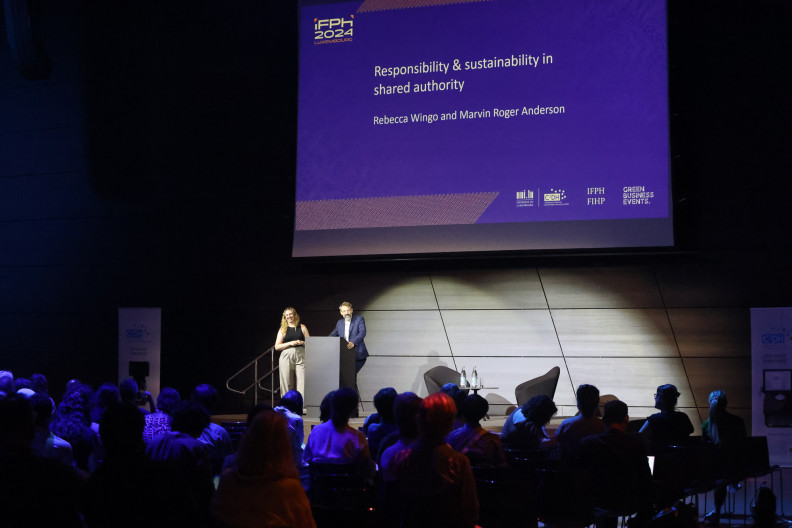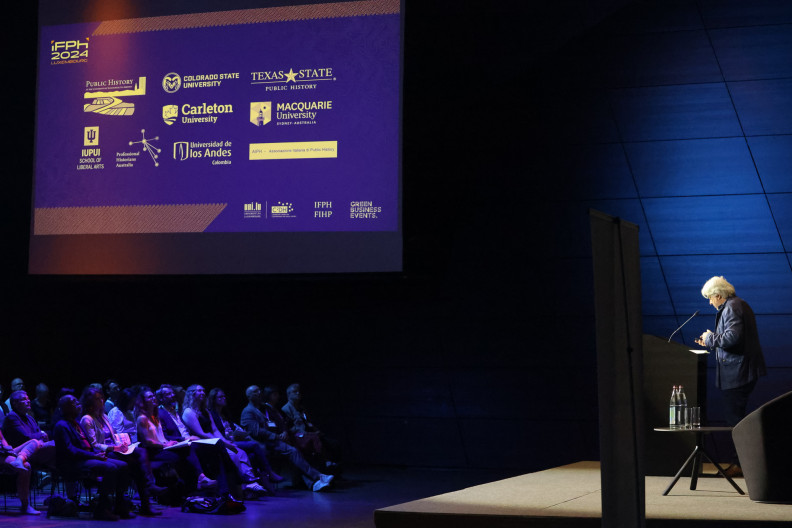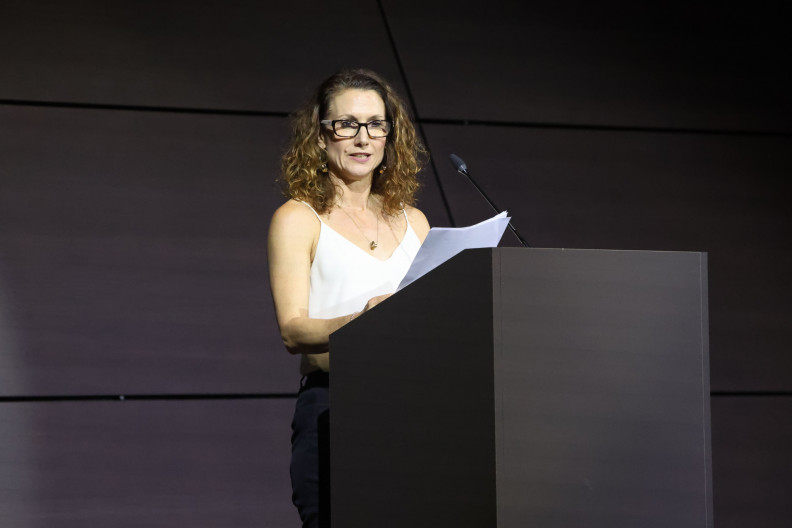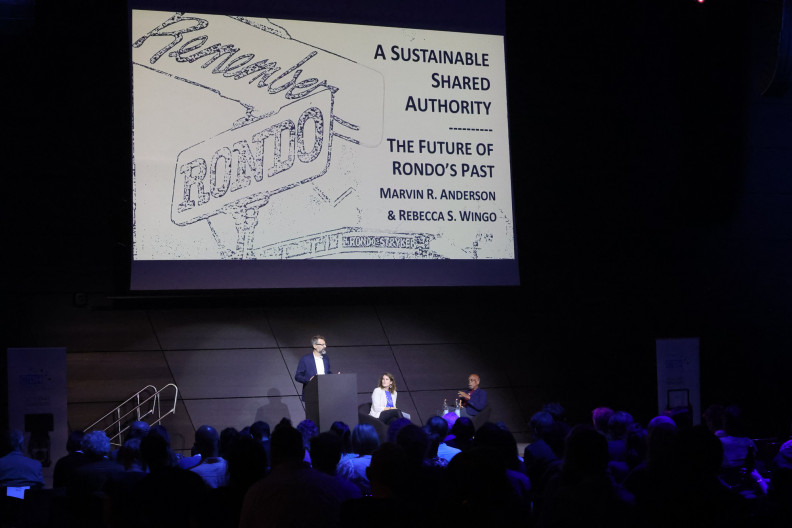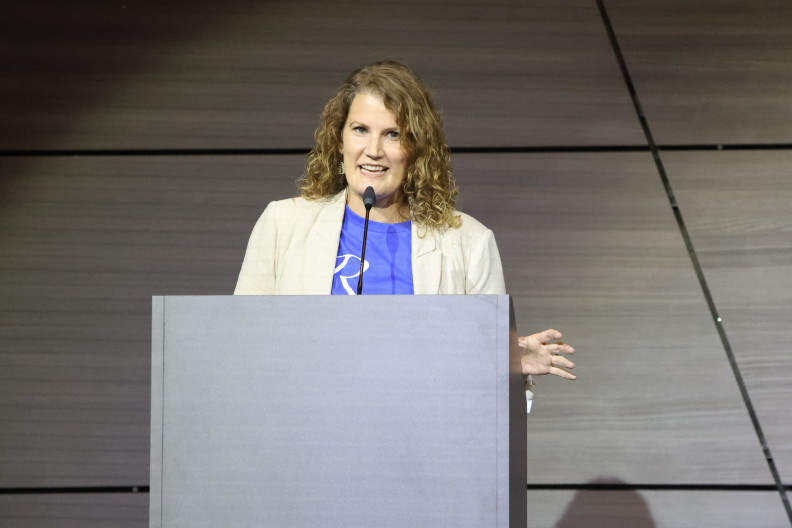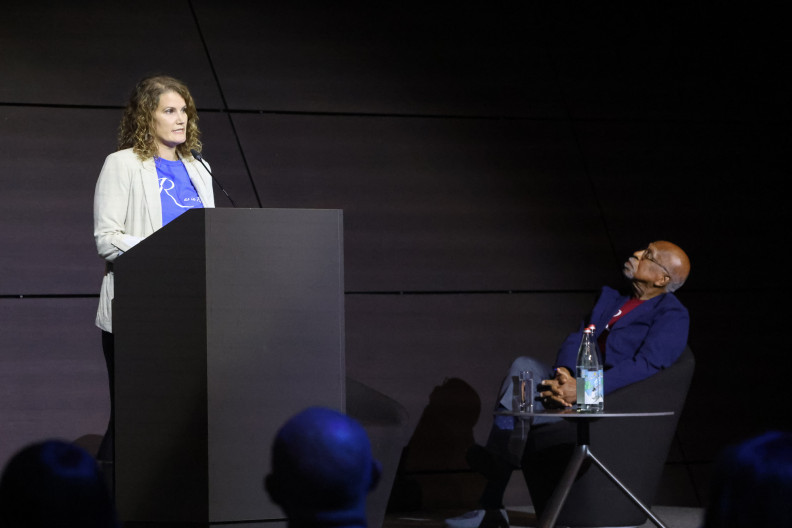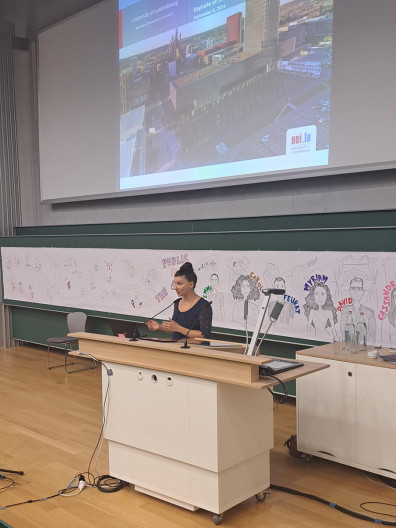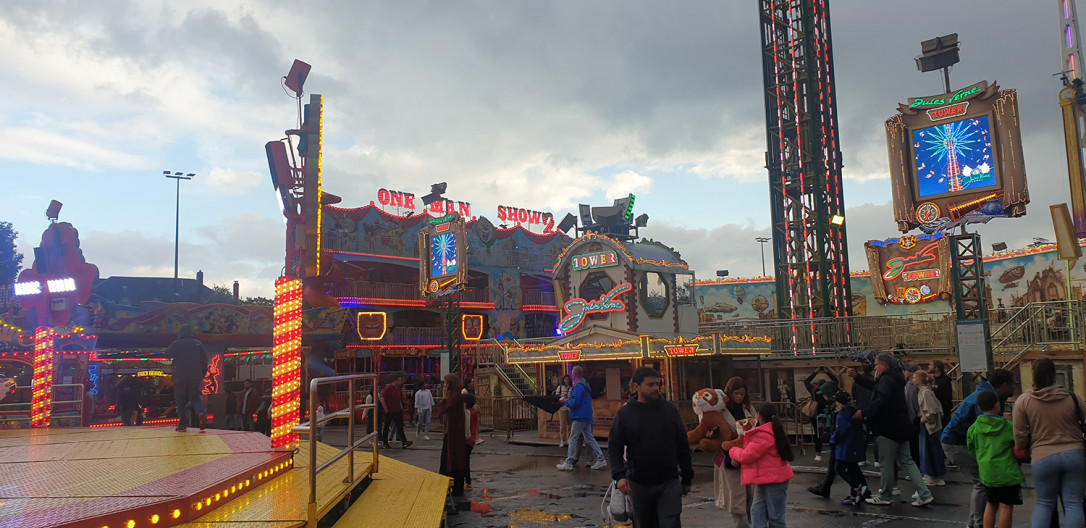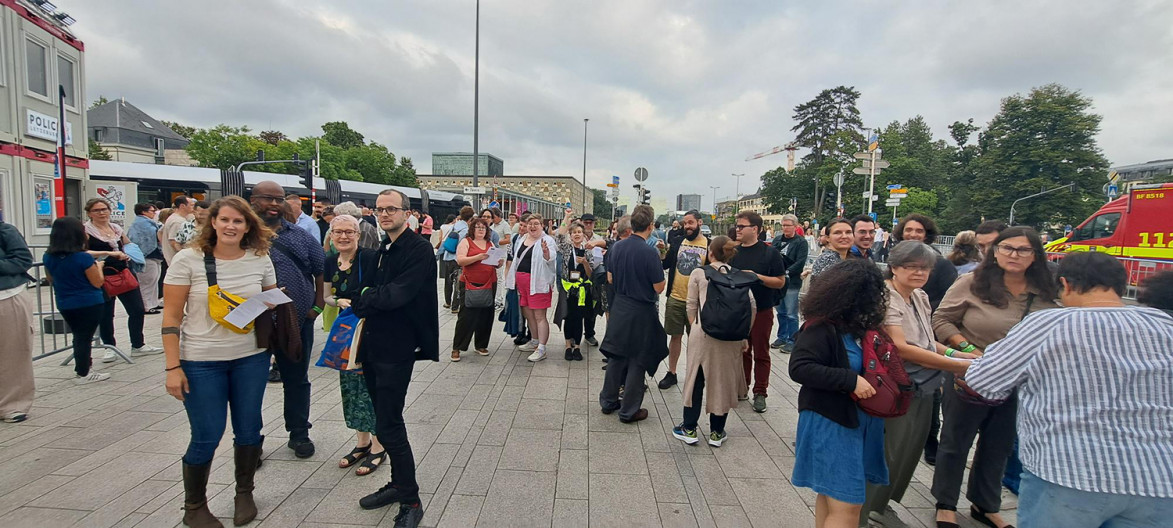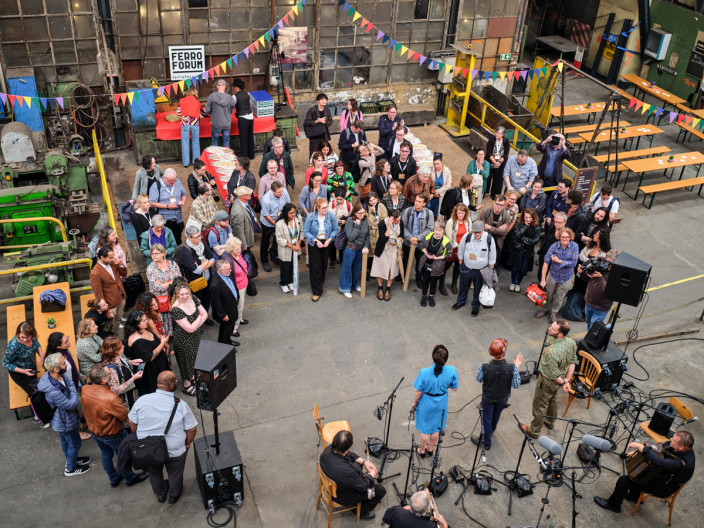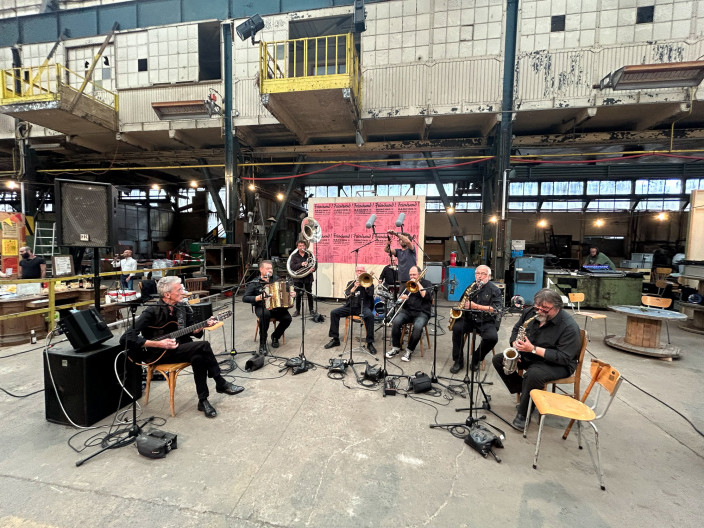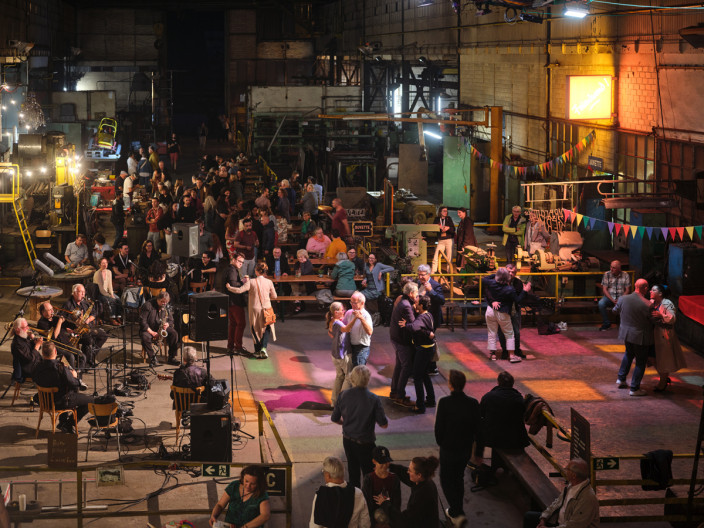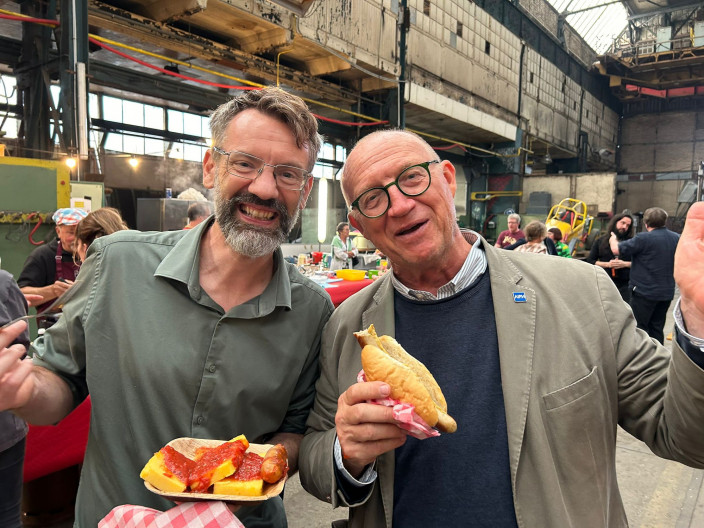The International Federation for Public History (IFPH) is an organisation that aspires to create international links between public historians and promote the development of a global network of Public History practitioners. The federation's primary purpose is to encourage, promote and coordinate, at an international level, contacts, teaching and research in public history. The IFPH 2024 conference welcomed speakers and attendees from over 37 countries including Ireland, Palestine, Brazil, Japan, Australia, Mexico, India, Rwanda, and the United States.
The conference marked several notable firsts, including being the inaugural IFPH event held in a hybrid format and earning a green event badge for its commitment to sustainability. The fully hybrid approach was chosen to improve accessibility for those unable to attend in person and to minimize environmental impact, a key priority for the organizing committee. Catering utilized local food networks, and the event featured reusable and recycled materials, including name tags embedded with seeds to be planted after the conference.
Across the 4 days there were 2 keynote addresses, 2 roundtables, 4 workshops, 5 working groups, 16 poster presentations and 36 panels. Sessions spanned across different themes, disciplines and global contexts including Public history and the arts, impact assessment, participatory practices, oral history, digital history, journalism, decolonization, inclusion, heritage, sport and politics. Each session was jam packed with valuable insights, ideas and reflections.
The opening keynote address entitled 'A Sustainable Shared Authority. Ensuring the Future of Rondo’s Past' was given by Rebecca Wingo (Associate Professor of History and the Director of Public History at the University of Cincinnati) and Marvin Roger Anderson (community activist and key figure involved with ongoing efforts to celebrate the past, present and future of Saint Paul’ African American community of Rondo). Blandine Landau and Laurent Moyse presented the closing keynote entitled 'Keeping their memory alive together: the Digital Memorial of the Shoah in Luxembourg'.
In addition to the conference programme, the evenings were filled with remarkable social events. Attendees had the chance to tour the Belval blast furnaces, the last two operational furnaces in Luxembourg, which stand as symbols of the country's industrial history and economic development. Participants also enjoyed a trip to Schueberfouer, the oldest funfair in Luxembourg City, where they competed in a photo safari, hunted for clues, and tackled various challenges.
The highlight of the week was the closing event, Feierôwend! This event took place at a central workshop of a former steel factory, now managed by the FerroForum collective. It offered a dynamic experience of public history through creative reenactments, interactions with local "arti-vi-sts" in industrial heritage, and exploration of the region's largest and best-preserved industrial site, before its transformation into an "eco-neighborhood." Feierôwend! exemplified the vibrant potential of transdisciplinary collaborations between artists and researchers, celebrating the festive, social, and artistic aspects of factory workers' lives and bringing to light lesser-documented facets of the industrial past.
The aim of the conference was to foster a rich dialogue among a broad spectrum of participants in the field of public history. By prioritizing inclusivity and accessibility, the event provided a platform for a variety of voices and perspectives, enhancing the overall exchange of ideas and insights. The hybrid approach not only enriched the conversation but also ensured that different experiences and viewpoints contributed to a more comprehensive and global understanding of public history.



